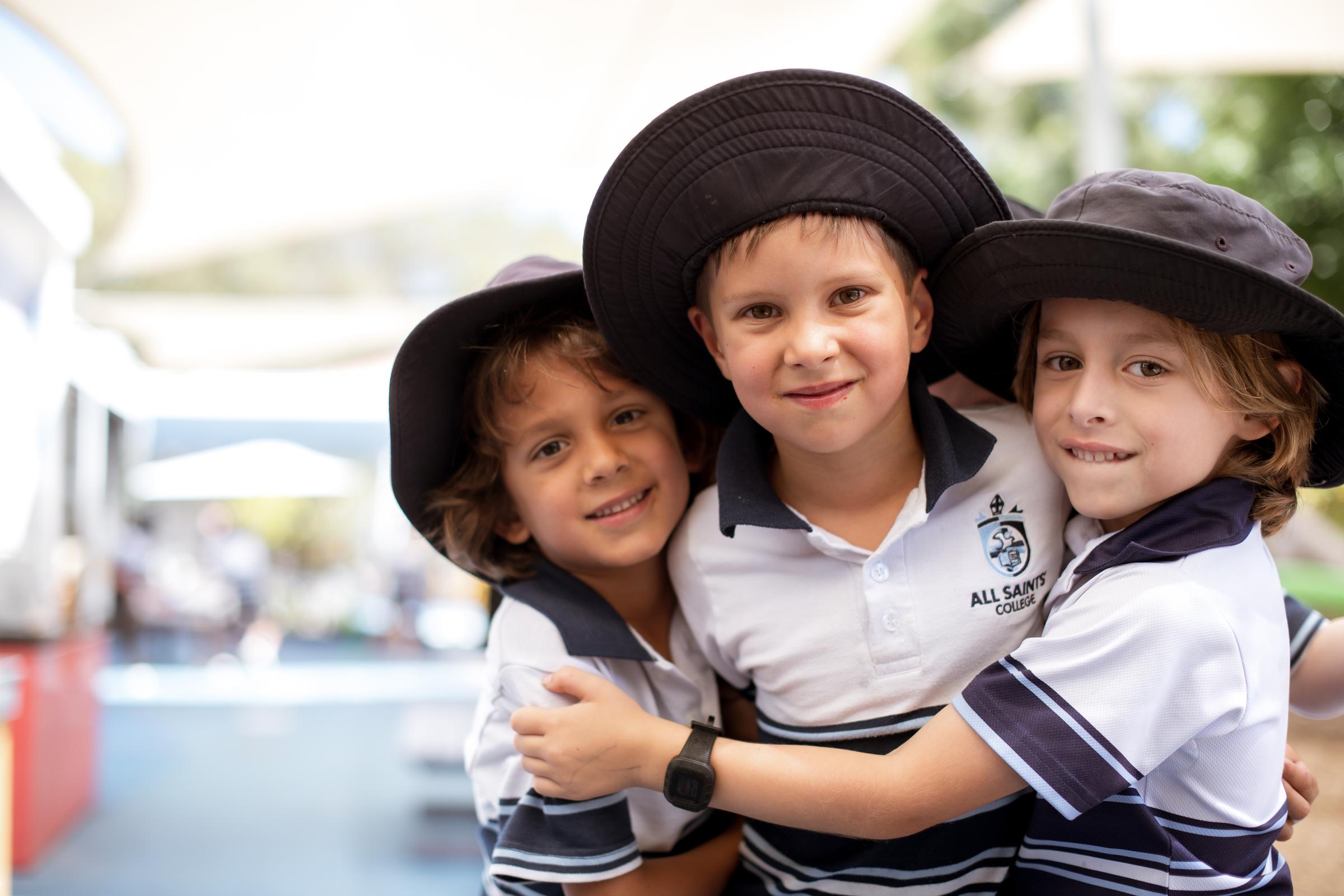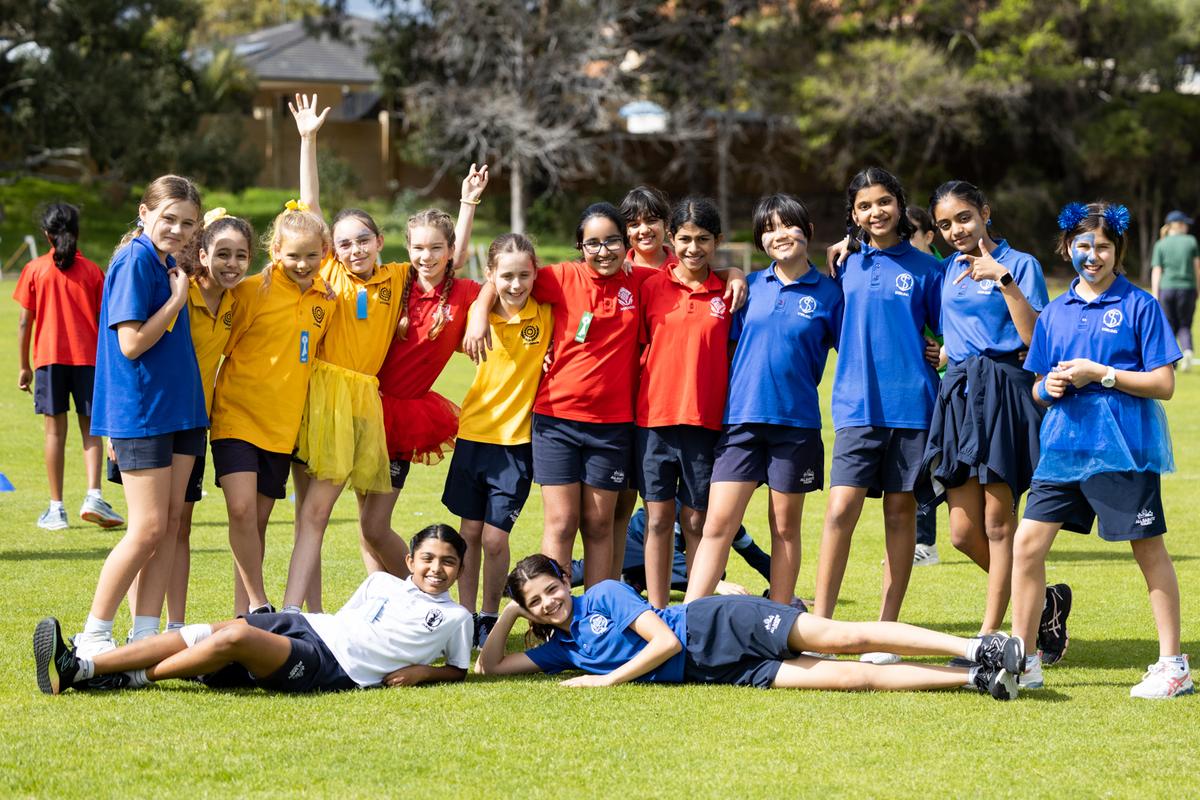Wellbeing

Student Wellbeing
All Saints’ College is a child-safe organisation which seeks to promote positive student wellbeing. The College is firmly committed to the wellbeing of our community and is active in its support of all students throughout their school activities and personal development.
Student wellbeing centres firstly upon the classroom teacher, who is the initial point of contact for any issues concerning your child. Other staff – including the Junior School Psychologist, College Chaplain, Assistant Directors of Junior School and the Director of Junior School – support the classroom teacher regarding all student wellbeing matters.
Management of Student Behaviour
The Junior School’s management of student behaviour is based upon our College values of Empathy, Respect, Integrity, and Courage. Students are provided with developmentally appropriate opportunities to consolidate these competencies as they progress through the Junior School. These opportunities occur through our Class Buddy Program in which Junior students are paired with our middle to upper primary students, use of the Zones of Regulation and mindfulness practices, and the teaching of programs such as The Leader In Me (based upon Stephen Covey’s The 7 Habits of Highly Effective People), Friendly Schools Plus and the Keeping Safe: Child Protection Curriculum. These programs are supported by incursions, excursions and workshops appropriate to each year level. Additionally, the College works closely with cybersafety expert Paul Litherland to support and educate students and families when navigating the online world. This is in conjunction with students accessing the Common Sense Education and Digital Citizenship Curriculum.
Staff emphasize positive reinforcement of respectful behaviour, and work closely with students to develop Class and Playground Charters to guide them in their actions and behaviours. In instances of behavioural concern, the appropriate step of the ASC Junior School Positive Engagement Behaviour Management Process is implemented. This includes the use of Restorative Practices and Shared Concern facilitated and guided by College staff.
Bullying is not tolerated at All Saints’ College, with our approach being informed by our Anglican beliefs, the Friendly Schools Plus Program and the National Safe Schools Framework. Bullying occurs when someone (or a group of people) with more power repeatedly and intentionally uses words and/or actions which cause distress and risk the wellbeing of an individual, group or the wider College community.
When a bullying situation arises, it is important to separate the child and the behaviour, and that students are not labelled as “bullies”. By doing so, the message students receive is that bullying is a bad behaviour, not that a student who bullies is a bad person. A common emotional response is for families of bullying victims to want to see punitive consequences for the student(s) involved. While consequences may be applied, strategies like Restorative Practices and the Shared Concern method are usually more effective and likely to lead to longer-term positive behaviour change.
Parents and guardians can assist by encouraging their child/children by:
- Promoting respectful and inclusive relationships, not bullying others.
- Empowering students to be positive proactive bystanders who help other students who may be bullied.
- Taking care to include students who may be left out.
- Sharing concerns regarding others with an adult.
ASC JUNIOR SCHOOL POSITIVE ENGAGEMENT BEHAVIOUR MANAGEMENT PROCESS
Class Charters and playground charters are developed to reflect student behaviour expectations.
All staff recognise the importance of students’ input into their Class Charter and acknowledge positive student behaviour.
The Leader in Me
The Leader in Me has been implemented across the whole College. The Leader in Me is based on Stephen Covey’s 7 Habits of Highly Effective People and enhances student personal and social-emotional learning.
The language and concepts used within The Leader in Me from Pre-Kindergarten onwards will further support children to make positive decisions in their lives within the College and beyond.
The 7 Habits of Highly Effective People
Habit 1: Be Proactive 1. Pause Then Respond
You’re in charge 2. Use Proactive Language
3. Focus on Your Circle of Influence
Habit 2: Begin with the End in Mind 1. Define Outcomes before You Act
Have a plan
Habit 3: Put First Things First 1. Focus on Your Highest Priorities
2. Eliminate the Unimportant
3. Plan Every Week
4. Stay True in the Moment of Choice
Habit 4: Think Win-Win 1. Have an Abundance Mentality
Everyone can win 2. Balance Courage and Consideration
3. Consider Other People’s Wins as Well
as Your Own
4. Create Win-Win Agreements
Habit 5: Seek First to Understand, 1. Practise Empathic Listening
Then to Be Understood 2. Respectfully Seek to Be Understood
Listen before you speak 3. Value Difference
Habit 6: Synergise 1. Value Differences
Together is better 2. Seek Third Alternatives
Habit 7: Sharpen the Saw 1. Look after Your Whole Self

